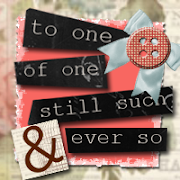You were used
To say extremity was the trier of spirits;
That common chances common men could bear;
That when the sea was calm all boats alike
Show'd mastership in floating;
Shakespeare's Coriolanus. Yes, I've read and finished reading the play. Being one of the latter plays, Coriolanus aptly shows Shakespeare's command of language. Who am I to resist his strong wordy expression?
Some of the lines that struck my attention the moment they occur were those above. Coriolanus was just banished by the people of Rome, and sadly he bore the sad news home, to his mother and wife. The ambitious mother was devastated. Coriolanus was her only son and her only hope. Coriolanus reminded her of her own advice on the theme of misfortune and suffering in life.
Quite amazing for a “Be strong!” advice, don't you think? He is saying that what really shows a man's spirit is not just suffering, misfortune, or sadness, but the extreme conditions of those. Extremity will show who you really are.
When he says “common chances common men could bear” of course he is playing with the word 'common' as something usual in its first use and as something low and debased in its second use. But even when we ignore the pun, it's still encouraging. By enduring hardships worse than most people, we have the chance to prove ourselves stronger than most people who have never had the same thing. It's not something to boast, but it kind of consoles me.
The last two lines give beautiful imagery that further emphasizes the point. It's easy to 'float' around, and float beautifully too, when the circumstances are convenient. The ship's quality is tested, not in sunny days, but in stormy nights. Likewise our quality is proven when we bear troubles, and triumph over them.
Thus my (somewhat long) Weekend Quote. Please share yours.

















